LifeSource Blood Donation App
Ensuring the Sustainability of live and blood banks in Nigeria
Client
LifeSource
Industry
HealthTech
Platform
iOS
The Problem
There has been a recent rise in deaths due to the absence of quick blood donors and the bureaucracy associated with sick people quickly getting their required blood type. According to the WHO, out of the 75 countries that report fewer than 10 donations per 1000 people, 38 are from Africa.
The Challenge
To ensure the sustainability of lives and blood banks in Nigeria, we thought it important to design a mobile application that allows people desperately in need of blood to get quick access to blood in their neighborhood and locality without distance being a challenge to them getting good health care.
It also provides an opportunity for donors to donate blood freely at their convenience and at the nearest preferred blood donation center close to them without necessarily visiting a hospital.
The Solution
LifeSource is a blood donation app that connects potential donors to patients in need of blood. It makes reaching out to potential donors simple and helps people to become voluntary donors. In addition, donors can track the impact of their donations and create awareness around blood donation.
Every human being requires blood; hence, it is essential to all human life and the world over. This seems obvious because blood constitutes approximately 8 percent of body weight; the average male’s volume is between 5 and 6 liters, and the average female's is between 4 and 5 liters.
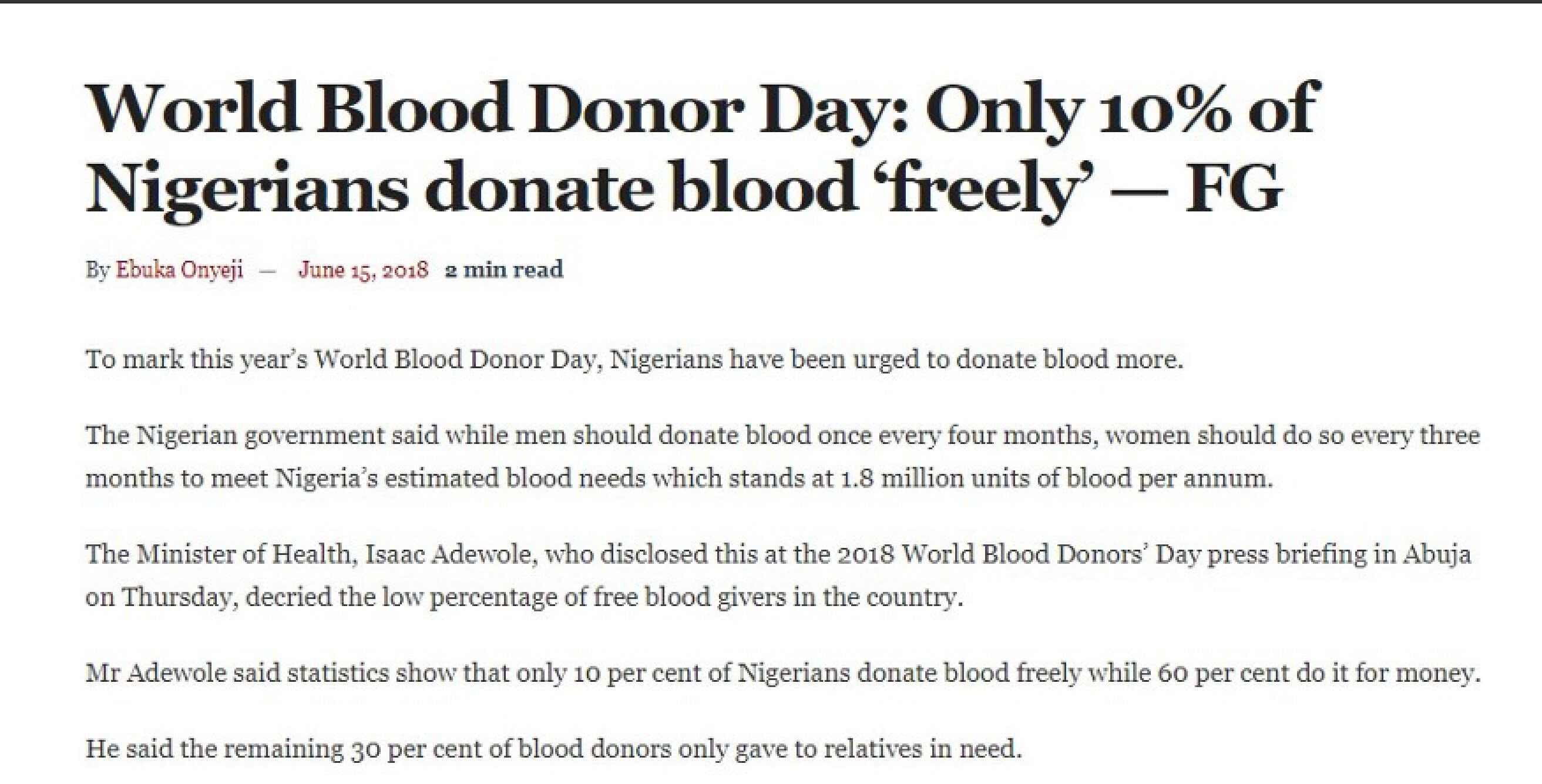
Underscoring the need for blood donations is the fact that Nigeria has the fourth-highest maternal mortality rate in the world, accounting for 19% of all maternal deaths globally, with postpartum hemorrhage (the loss of too much blood following birth) leading the cause of such deaths, and the lack of infrastructure to get crucial blood supplies in Nigeria compounds this problem.

Nigeria’s low blood donation rate is associated with the way people perceive it based on their religious beliefs. For instance, Jehovah's Witness believers see blood donation and transfusion as against the will of God.
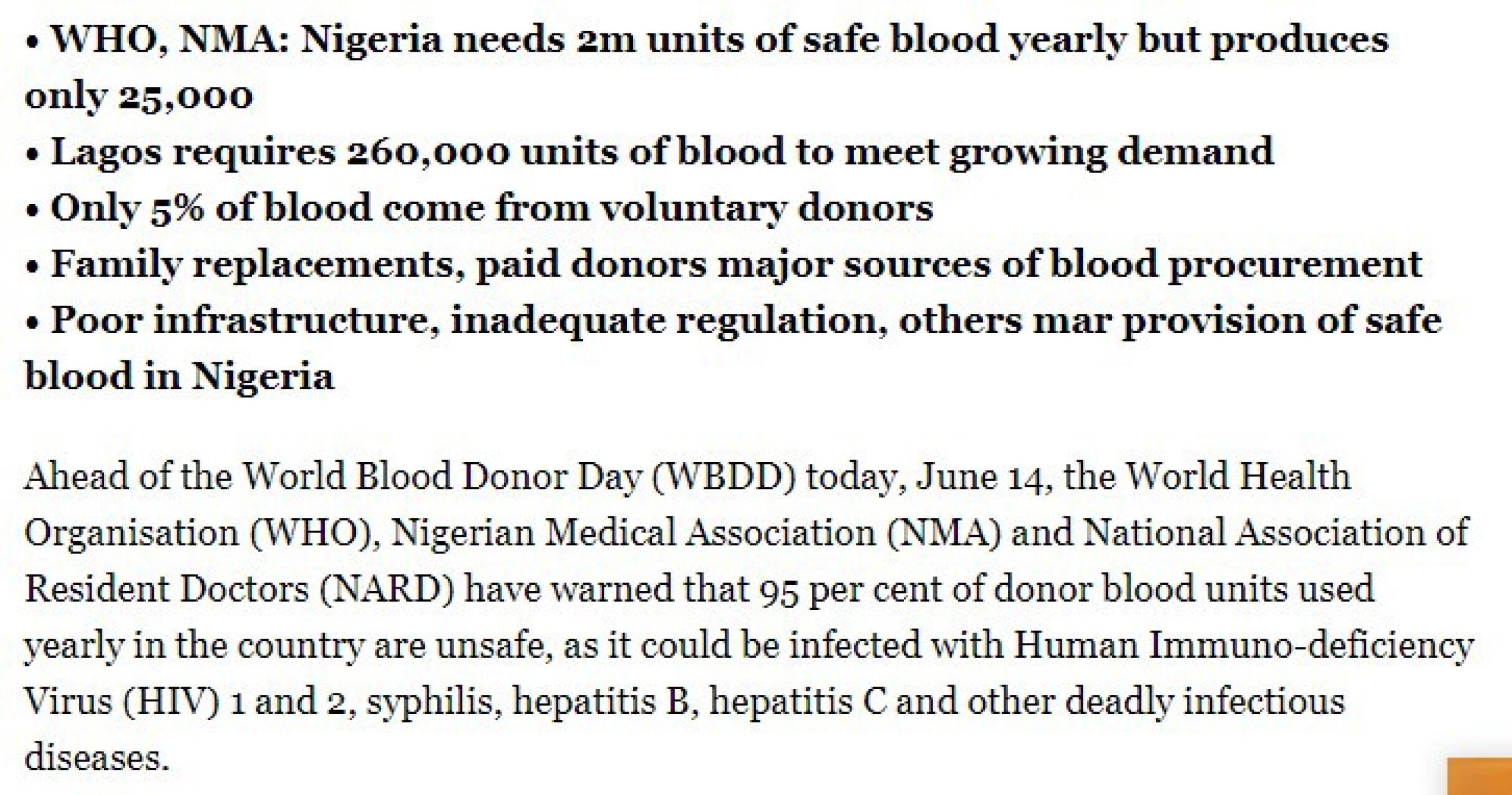
Design Process
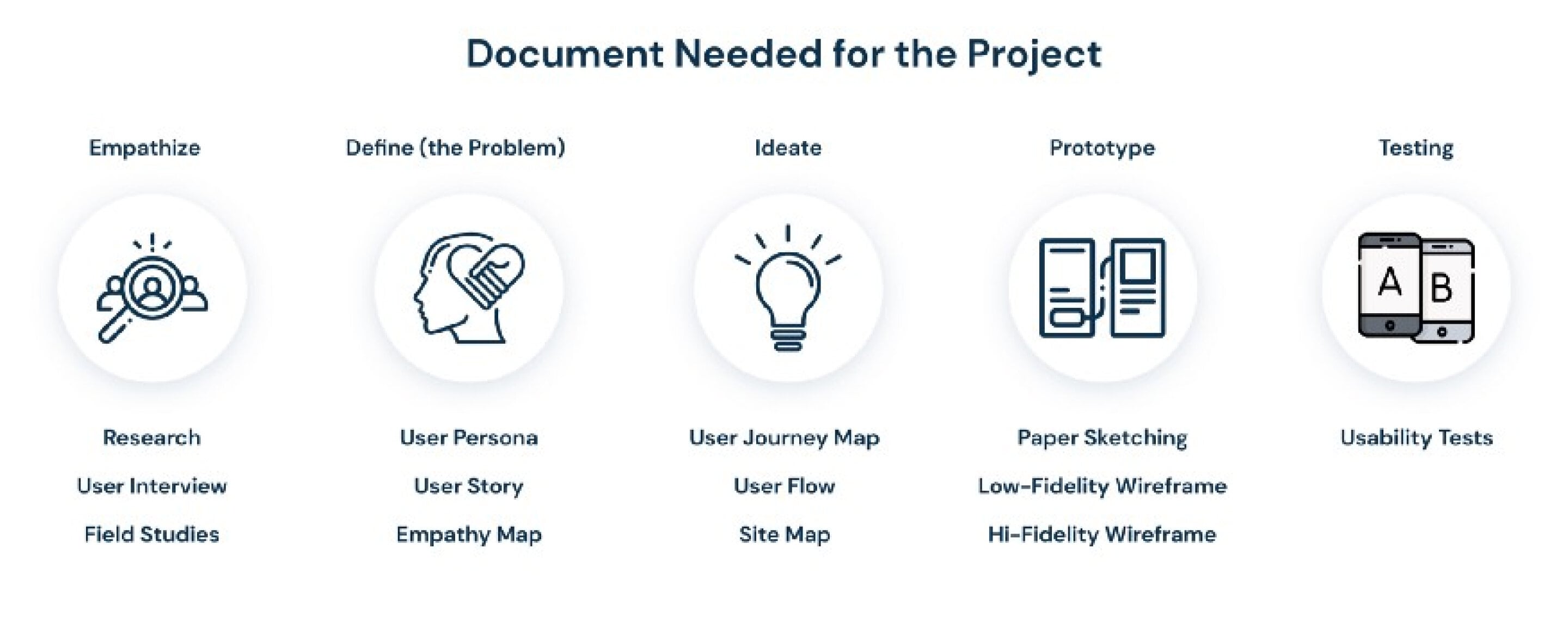
User Research
To understand the problem better, I created two separate interviews for the project:
i) The Donors and Receivers
ii) The Hospital and Blood Banks
Purpose of the Research
This research aims to validate the claim of a lack of blood donors and the problems associated with blood donations. Furthermore, this research enlightens us on the steps and decisions to design a better solution to the problem. Design decisions were made regarding user flow, user pain points, and user goals based on the research results.
After performing user interviews with 18 people, we discovered the key problem areas. This can be seen HERE
Major Problems from the Research
i) The process of blood donation is cumbersome and tiring for a lot of people
ii) The challenge of not being able to find donors nearby or readily available
iii) Lack of proper awareness to donors on the benefits attached to blood donation to citizens
iv) Poor Motivation to Donate
Solutions and App Features
After going through the response from the interview and pinpointing the pain points, frustrations, needs, and emotions of donors, I came up with a potential solution that addresses the discovered problems, putting the patients and donors in mind.
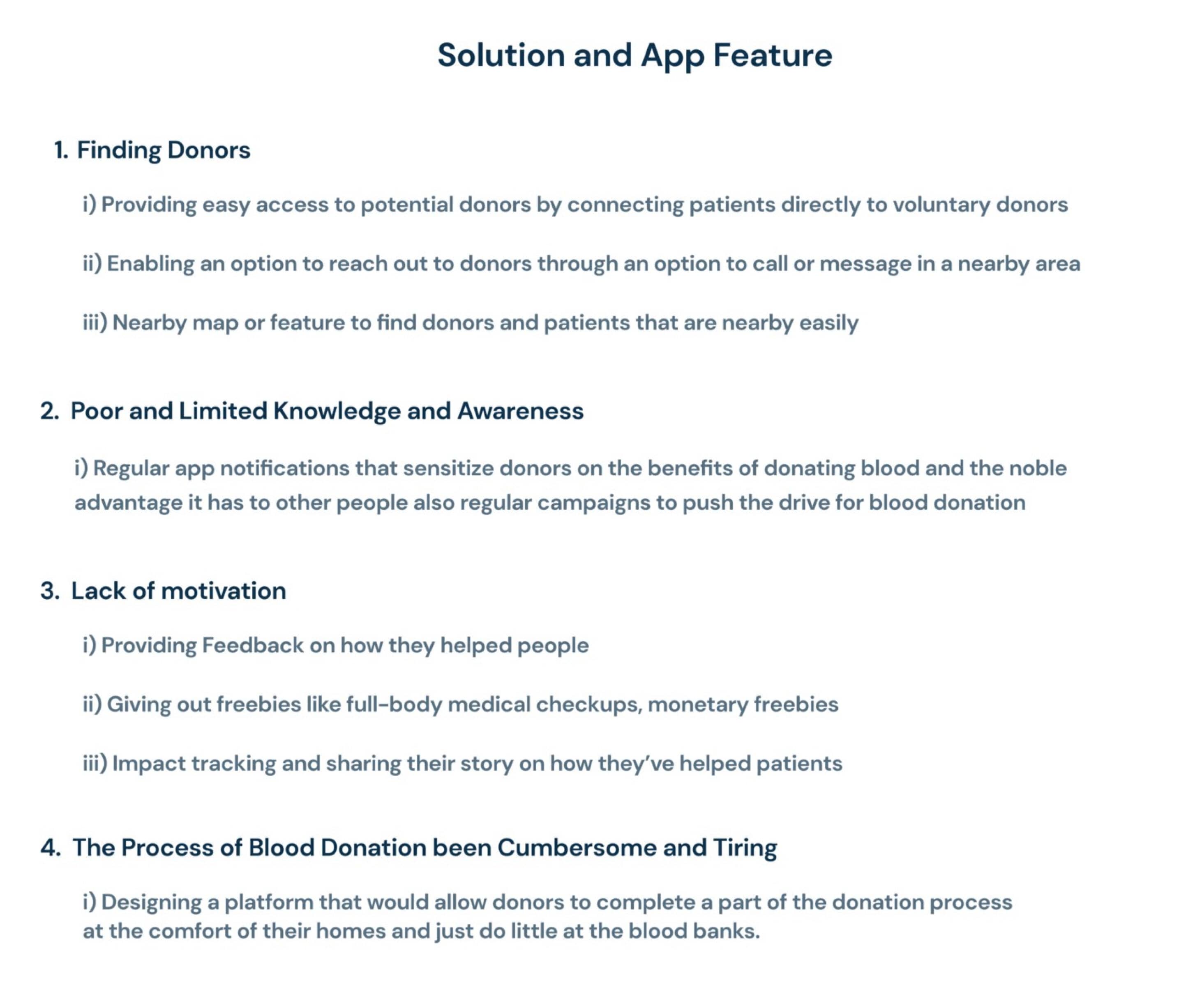
User Persona and Empathy Map
After going through the response from the interview and pinpointing the pain points, frustrations, needs, and emotions of donors, I came up with a potential solution that addresses the discovered problems, putting the patients and donors in mind.
User flow and Sitemap
After going through the response from the interview and pinpointing the pain points, frustrations, needs, and emotions of donors, I came up with a potential solution that addresses the discovered problems, putting the patients and donors in mind.
Low-fidelity Wireframe
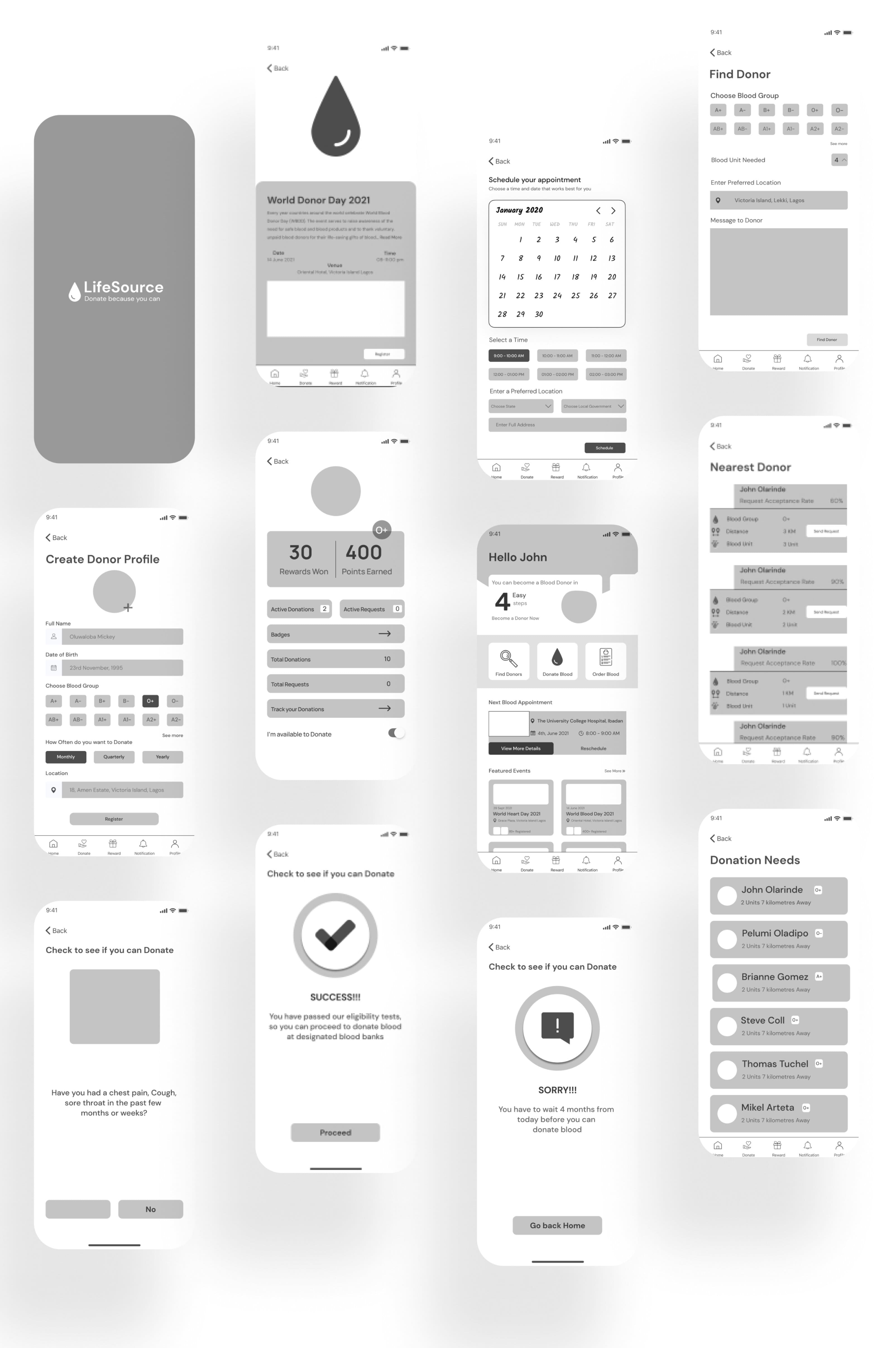
Onboarding Screens
I decided to go ahead with a simple onboarding screen using illustrations to demonstrate blood donation. illustrations were gotten from storyset.com
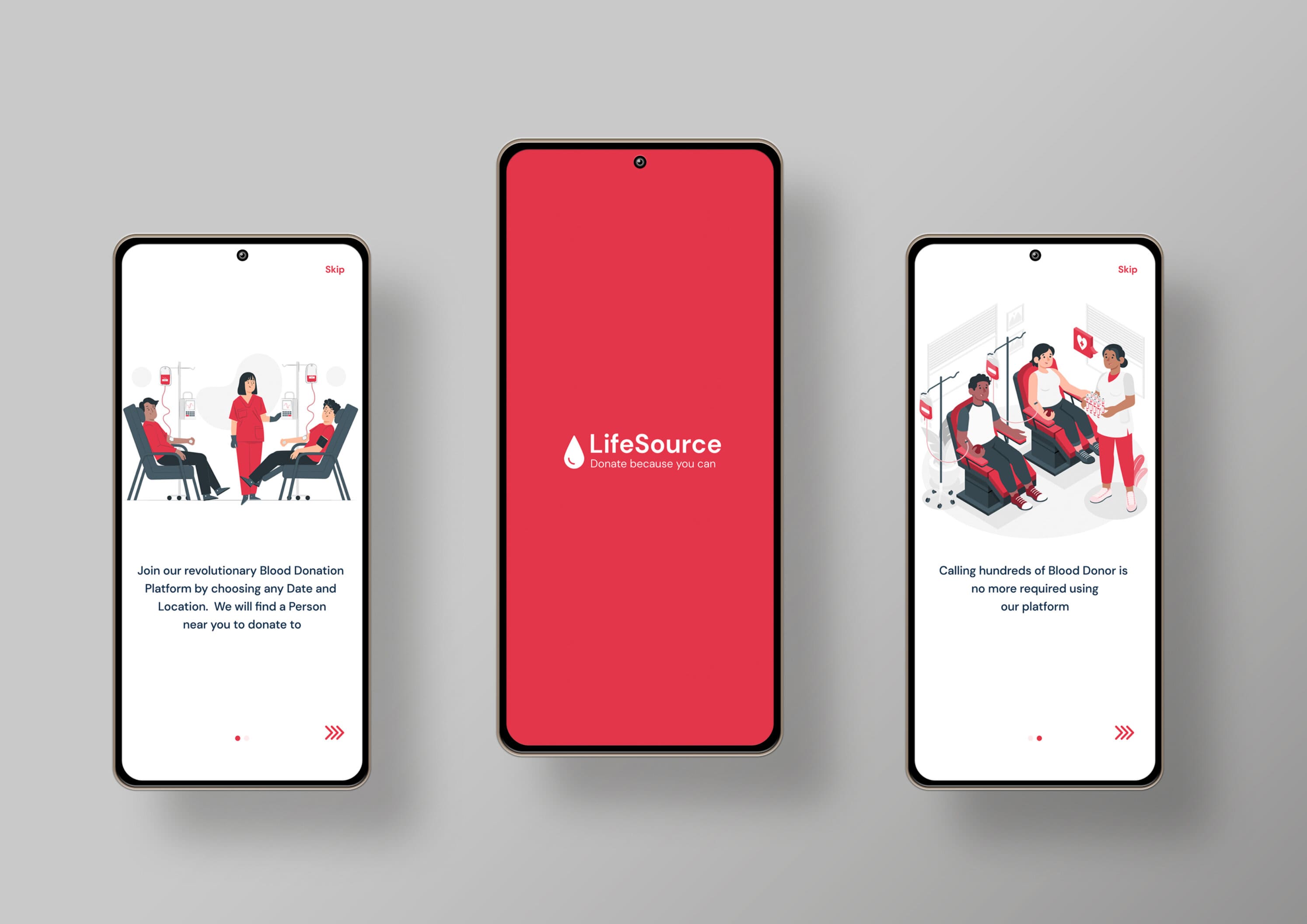
Authentication
Users will be given two choices: login or sign up. Users are also asked to complete their accounts using a one-time password sent to their email box.
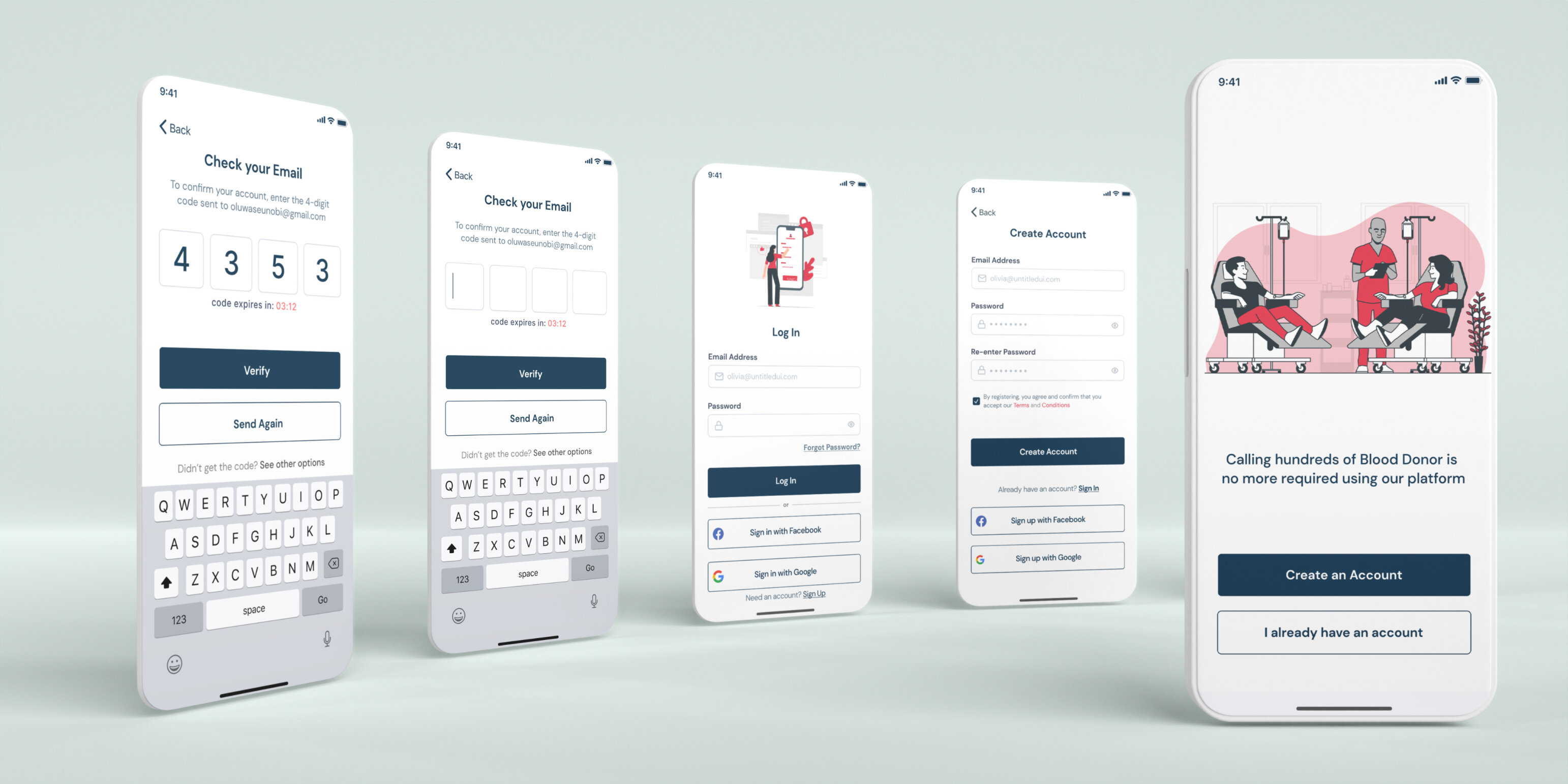
Home Screen
The card home screen was designed to simplify the content on the home page, thus creating pleasing and actionable experiences that keep the users engaged with the app.
Based on research, I introduced a bottom navigation, so users have access to important features instantly.
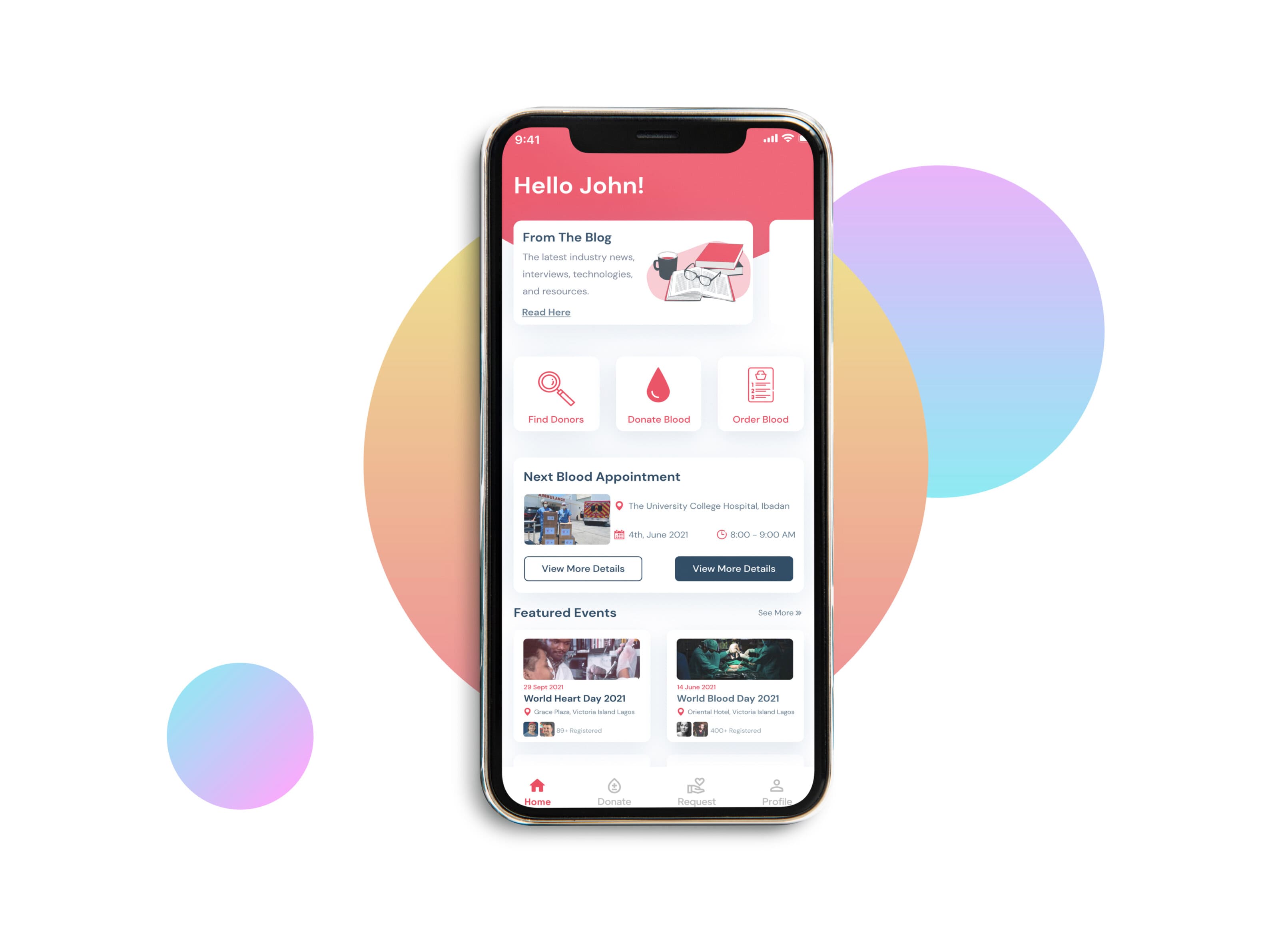
Blood Test Questions
The card home screen was designed to simplify the content on the home page, thus creating pleasing and actionable experiences that keep the users engaged with the app.
Based on research, I introduced a bottom navigation, so users have access to important features instantly.
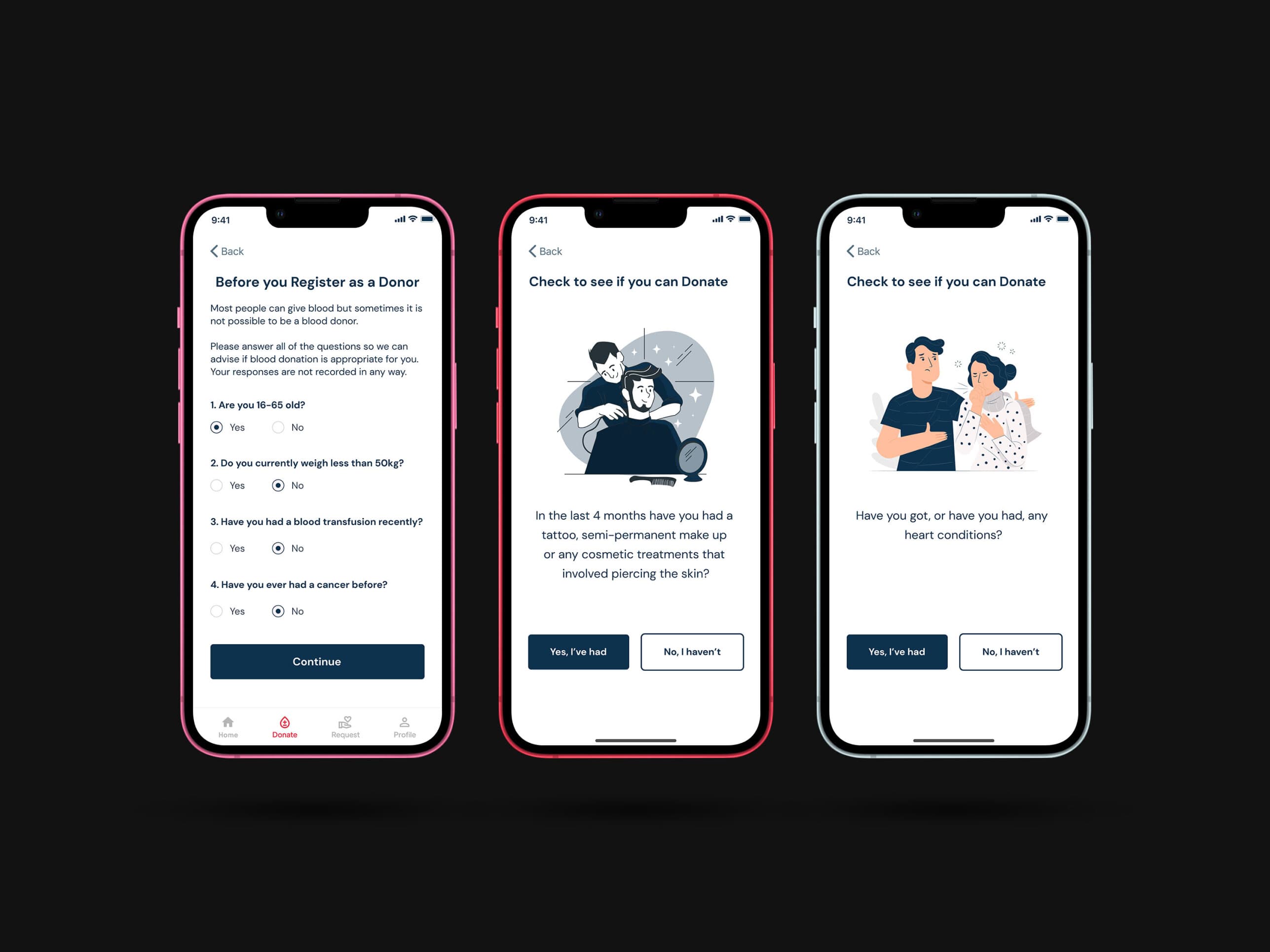
Result of Test Questions
After a series of questions have been asked of the donor, a screen is shown to tell whether the screening stage was successful or not. From there, the donor would be prompted to either go back to the homepage or proceed to donate blood. This reduces the process of blood donation from being cumbersome and tiring for a lot of people, which was one of the problems highlighted during the research and empathizing stages.
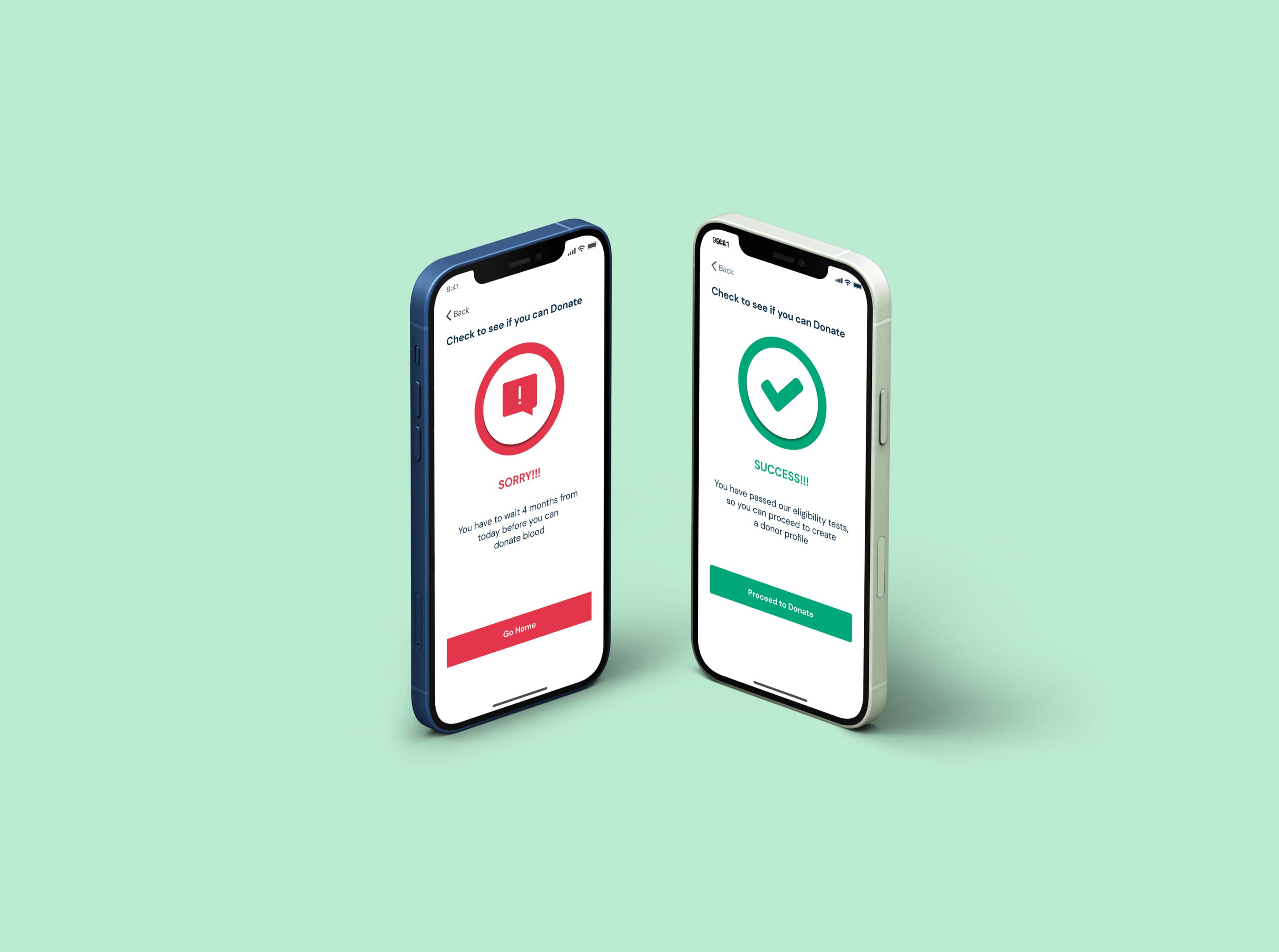
Donor Section
In the donor section, users can enter the blood type and location they are looking for and proceed to send messages. After obtaining a list of donors available through donor search, donor search can send donor requests to available donors.
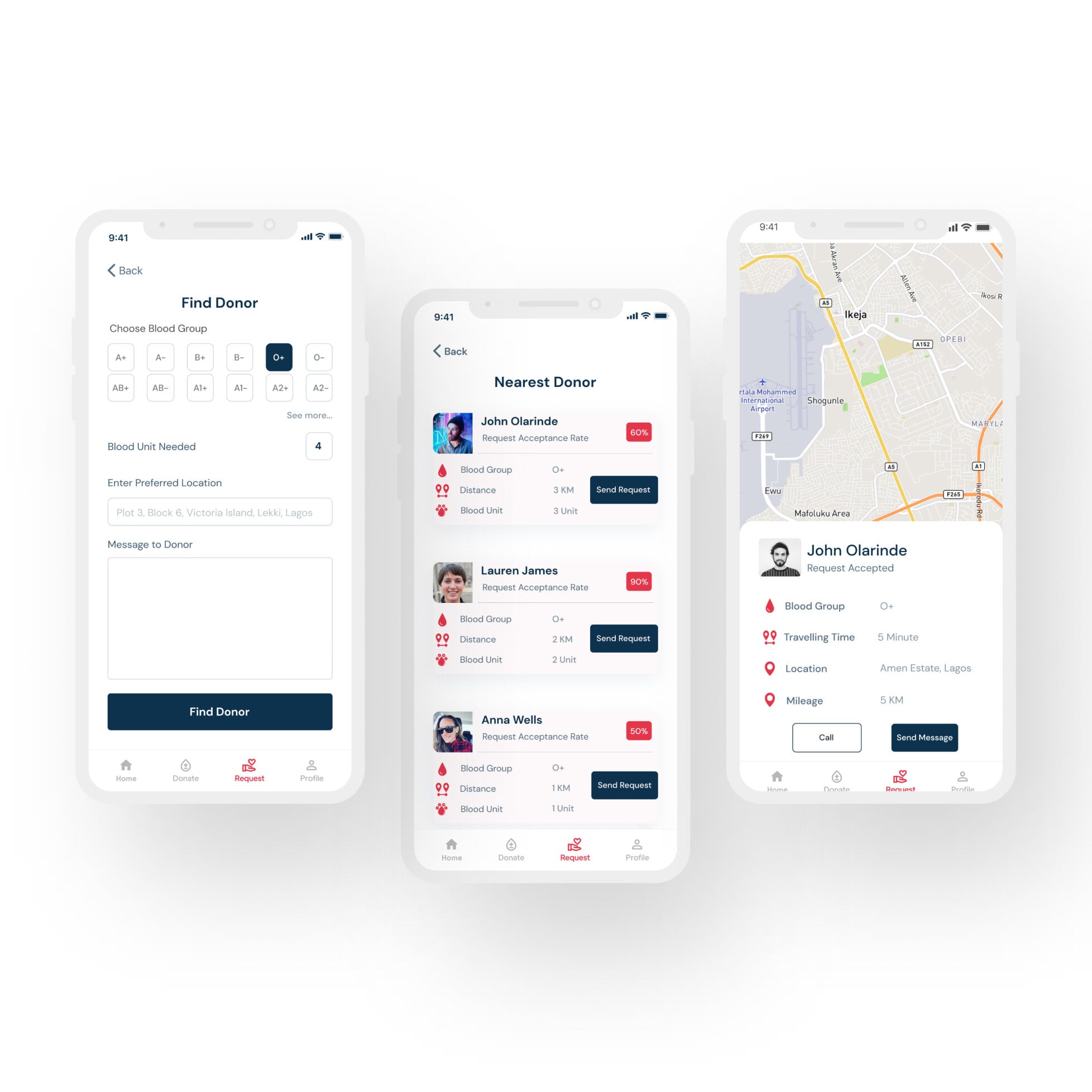
Profile Section
Users can turn on and off their donor status on the profile page, check rewards won, points earned, badges, total donations, and active donations and rewards.
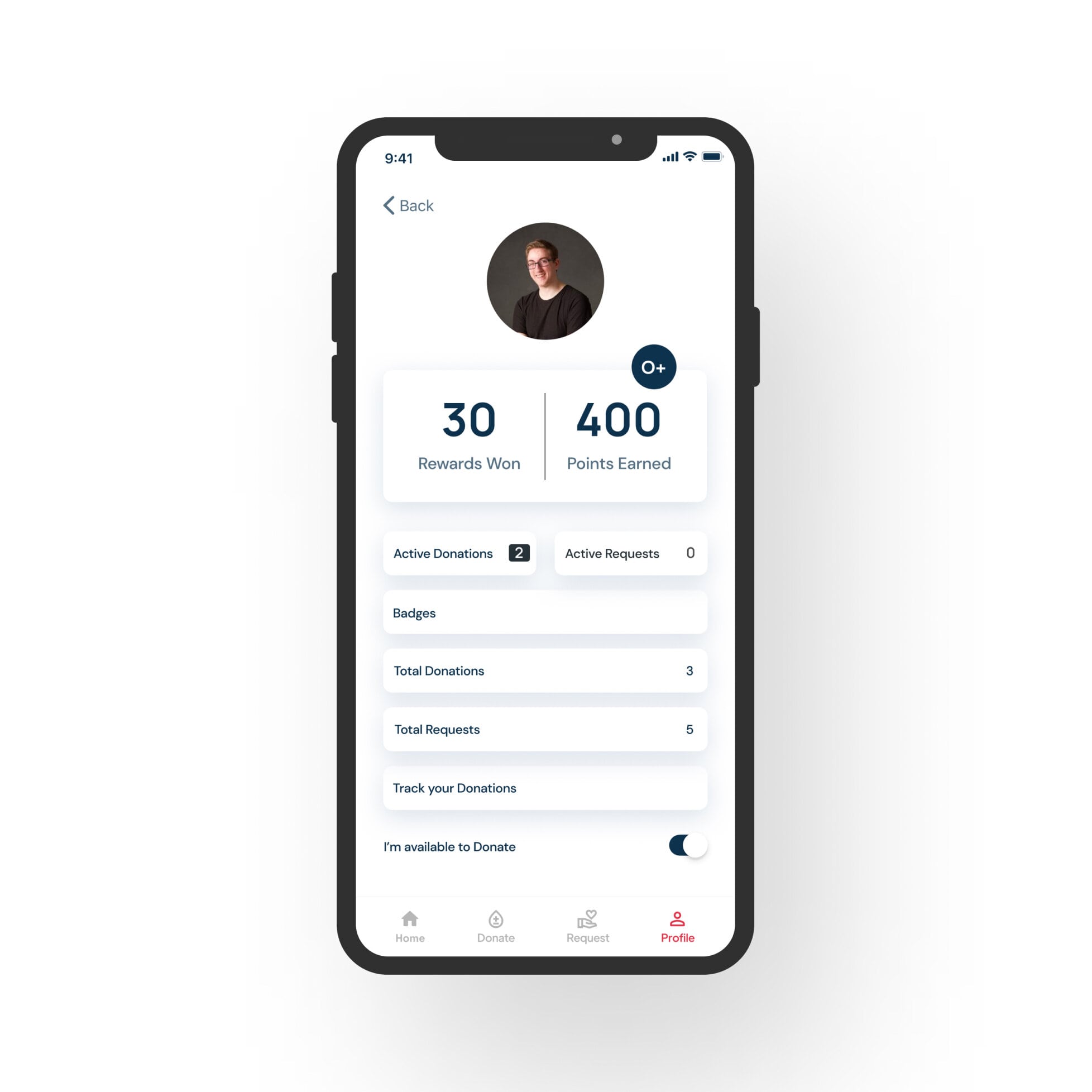
Schedule Appointment
The user can schedule a donation appointment at his convenience and choose the preferred and closest blood collection center, date, and time. He can also reschedule based on his availability.
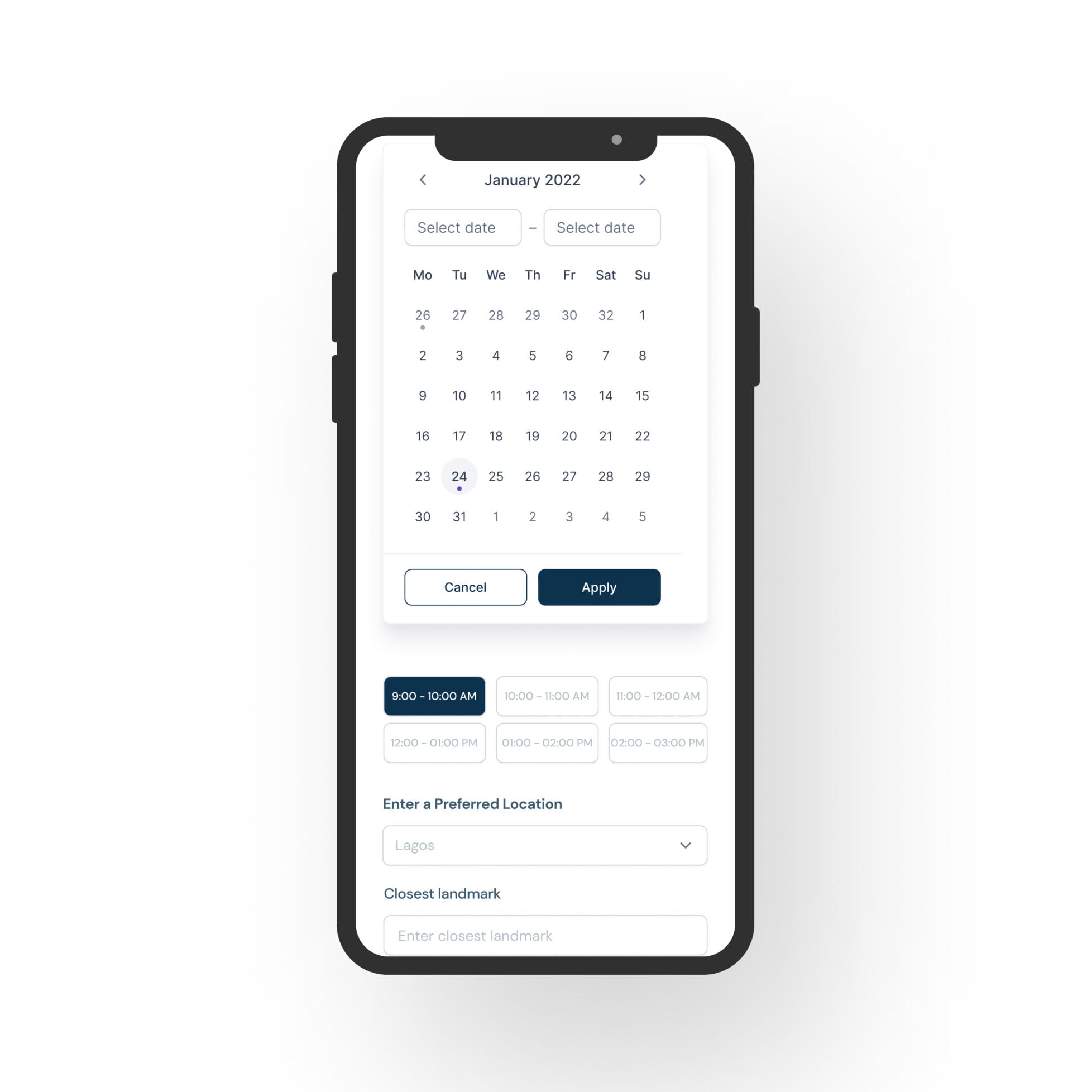
Logo
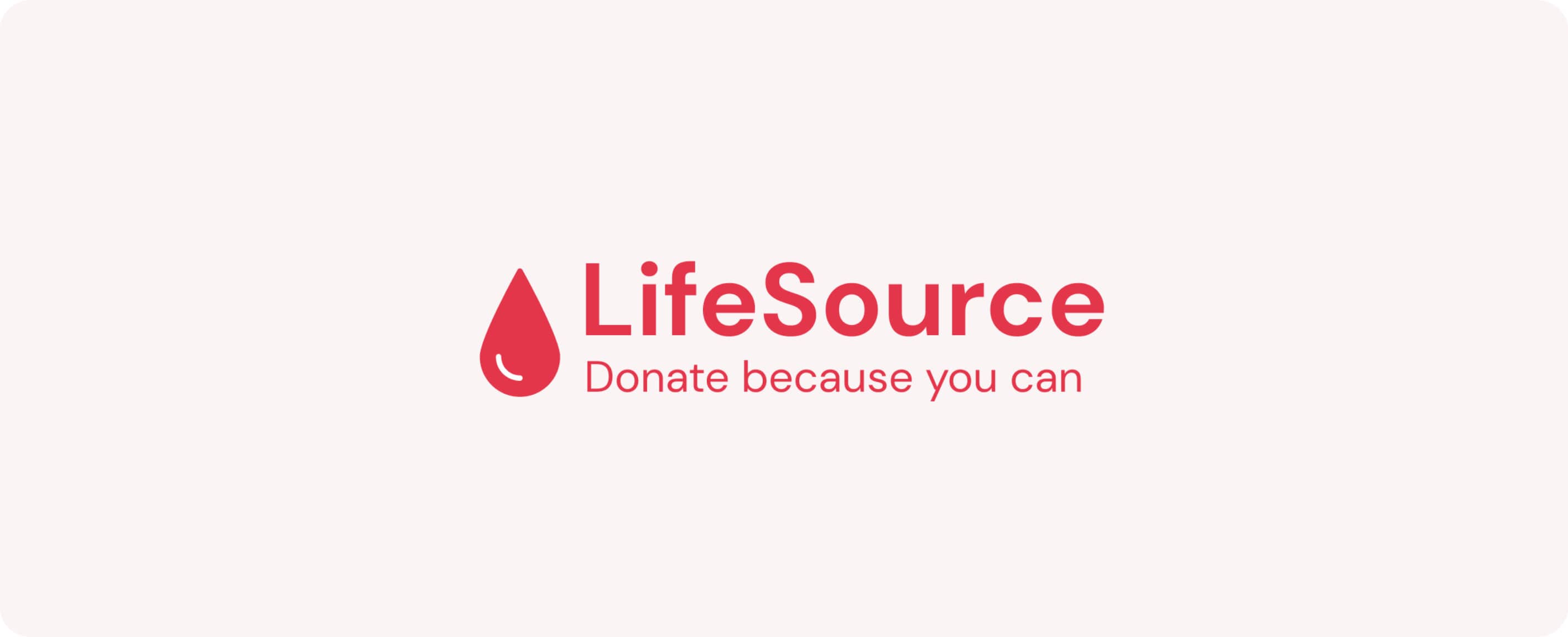
Typography
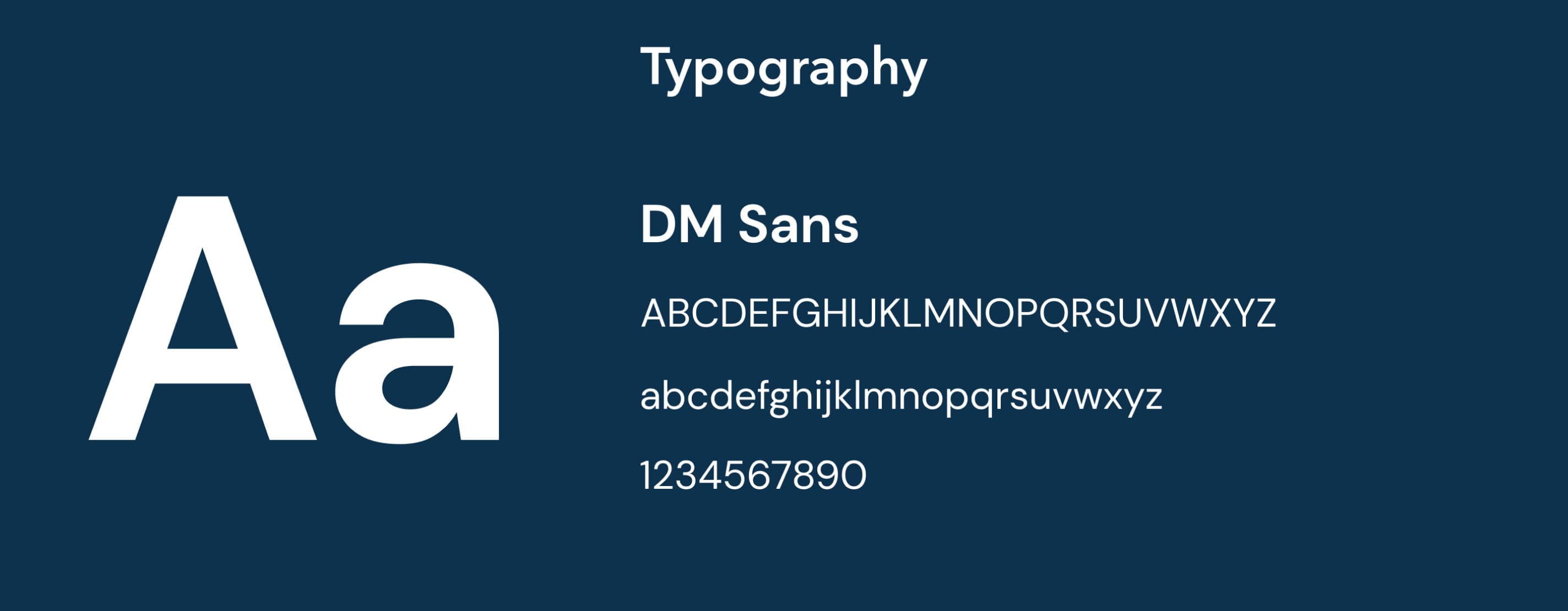
Color

What I Learnt
Designing the app has been a challenging and rewarding journey. It was clear from the onset that the major challenge would be to design a mobile application that allows people desperately in need of blood to get quick access to blood in their neighborhood and locality without distance being a challenge to them getting good health care.
I researched the pain points and the underlying reasons and opinions behind the dwindling state of blood donation. I understood the users’ needs through the interviews and conversations with people in selected categories (Medical Personnel and Individuals). Finally, I faced the challenge of creating an engaging app both from the user experience perspective and the visual perspective.
What I Learnt
Deep research about specific features
Usability testing of the prototype with users
Improve user flow
A comprehensive business model